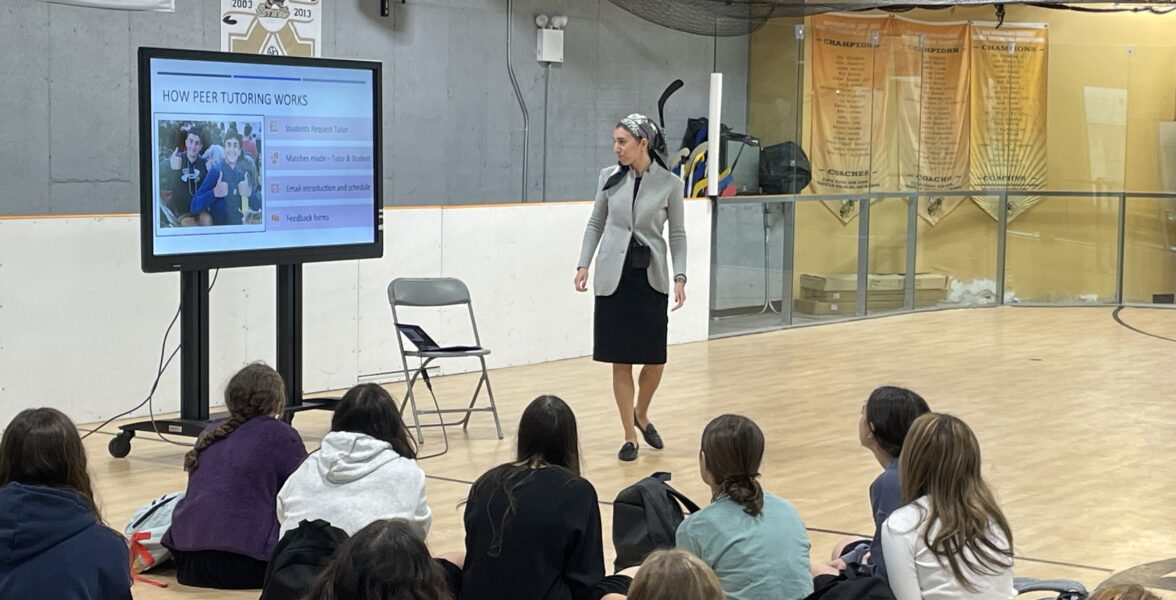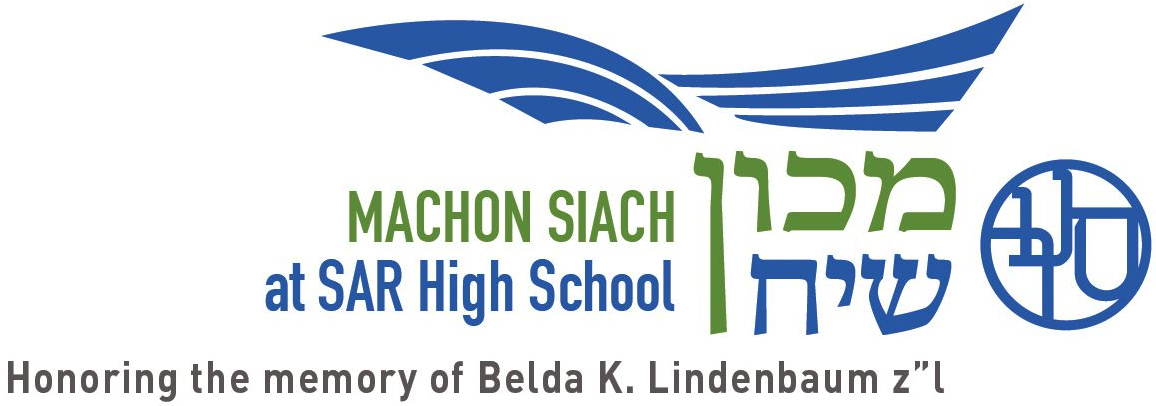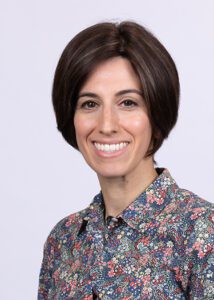
Teaching Kindness and Empowering Future Leaders
As both a teacher and a mother, I believe kindness and leadership are learned through practice, not instruction. These are values we always try to impart to our students, but I wanted to create more opportunities for students to practice them, not only in the classroom but beyond.
In 2021, with these values in mind, I piloted a peer tutoring leadership program at SAR High School. Older students attended a tutor training session and volunteered their time to become tutors for younger high school students in math or science. I collected weekly feedback about productivity and effectiveness to ensure the program’s success and allow it to grow. In its first year, the program had a surprising 195 student participants.
Through free tutoring, SAR students became leaders, not because we taught them about leadership but rather because we created opportunities for them to practice leadership and they embraced those opportunities. A community of kindness was created, not because students were told to be kind but because we opened doors for human connection and they forged relationships.
In October of 2021, seeing the model that had just begun within the high school, some 9th graders asked if they could become tutors too. I reached out to Michele Saks, SAR Academy’s Math Department Chair, and asked if we could try something new. Until that point, middle school students had sometimes been mentored by high school math students in upper grades, but we had never asked 9th graders to mentor middle school students. We decided to give it a try, and I proceeded to train freshmen as tutors for middle school students. Again, the students rose to the challenge, and 38 freshmen committed to mentoring middle school students over Zoom for one hour each week.
The following September, I once again posted the volunteer forms for freshmen to become volunteer math mentors for middle school students. To my delight, new 9th graders who had received math tutoring the previous year as 8th graders now wanted to give back to the community and tutor a younger student. They expressed their appreciation for the program, the impact their mentors had on them, and their desire to become mentors themselves. I hadn’t realized at the time what an impact that program would have not only on the students’ math skills but also on their leadership skills and, even more importantly, on their middot. They had experienced kindness and wanted to pass that kindness on to others.
The second year of the peer tutoring program grew to involve 216 students, close to 30 percent of the high school. In the words of one student, “I love helping my mentee with math, but also changing their attitude towards the subject. It is amazing to have an impact on someone’s learning approach who is so close to my age. I didn’t realize until someone pointed out to me how much each tutee looks up to their peer tutor, but it’s been amazing to see how much a peer tutor can help.”
Another student wrote at the end of the year, “As a tutee, this program influenced me positively and I want to become a tutor next year and do the same.”
SAR’s motto is “It’s not just what you learn. It’s who you become.” We are committed to creating a community of kindness and helping each individual learn to lead in his or her own way. We recognize that not every student will thrive in the same academic ways, but many who have successfully completed a course can help a younger student understand concepts that they themselves once struggled with. This role enables students to become mentors academically but also allows them to support students socially and emotionally with various challenges that can arise. Seeing a fellow student who once struggled and is now a mentor can be incredibly inspirational for the younger students and tutors alike. This program highlights that every student has something to give.
I hope that this model of giving back contributes to a broader culture beyond the confines of the school where our alumni find ways to give back to the Jewish, American, and world communities well into the future. We must create platforms for students to become leaders, develop their own communities of kindness, and find ways of giving back. Parents, teachers, and administrators have the opportunity to empower their students and children to become leaders. Tutoring is only one of many ways to support them so they can build confidence and rise to the occasion.
In my own science classrooms, I deeply believe in the potential of each student. My students know this, not only because I tell them that I believe in them but because I practice that belief. After giving quizzes, I sometimes ask students to grade their own quizzes as I review the answers. Each year, the first time I do this, students look at me in amazement. They hear the message without my need to say it explicitly: yes, I trust you, so I am giving you this opportunity to mark your own quiz; now live up to my expectations. And they do. Not only do they live up to my expectations, but they push themselves to impress me and show me what they are capable of – which is sometimes much more than they themselves realized.
We all have the opportunity to create, to inspire and to lead. When students from the tutoring program came together at the end of last year for a celebratory ice cream party, they realized that they had created something truly special, not just a way to improve one another’s science and math skills but a community of learners, helping each other and growing together in mitzvot and middot.



